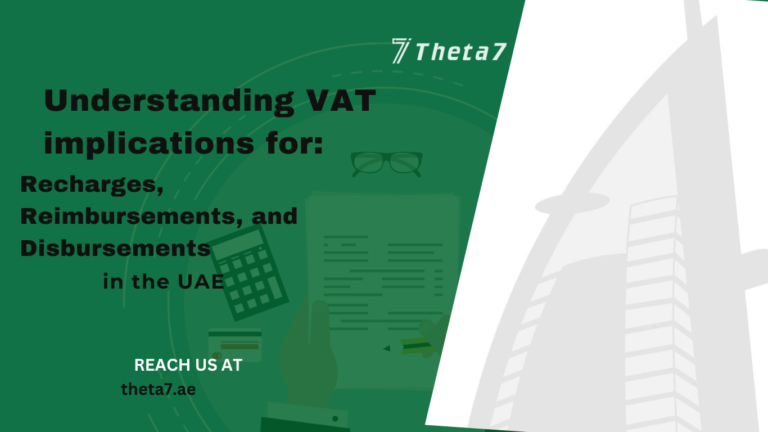
When you are VAT-registered, you may find yourself in situations where you have to incur costs on behalf of your clients.
It's crucial to handle these situations correctly, as they can affect your VAT registration threshold and the VAT you pay once registered.
The Federal Tax Authority (FTA) in the UAE clearly defines these expenses into three categories: Recharges, Reimbursements, and Disbursements.
These are considered VAT-able supplies, and VAT must be charged at the rate of the underlying service. Recharges and reimbursements refer to costs incurred when you, as the taxpayer, act as the principal party. In other words, you incur the costs in your own name as part of your overall service. For example, if an accountant travels to a client's office to review financial statements, the accountant invoices the client for the travel costs. In this case, VAT must be charged at the standard rate for the travel element, as the cost is incurred by the accountant as part of their service delivery, not by the end client.
Disbursements are costs you pay on behalf of your client. The recipient of the goods or service is your client, and they are ultimately responsible for payment. The invoice is in the client's name, and you are authorized to act as an agent in paying for the goods on behalf of your client. For instance, if your accountant renews your business license, pays government or freezone fees, and invoices you for these costs, the invoices/payment receipts would be in your name as the client. Importantly, disbursements must be the exact same value as the underlying costs and should not include any markup.
Understanding these distinctions is crucial for accurate VAT handling.
Have questions or need UAE tax advice? Feel free to get in touch with us.

